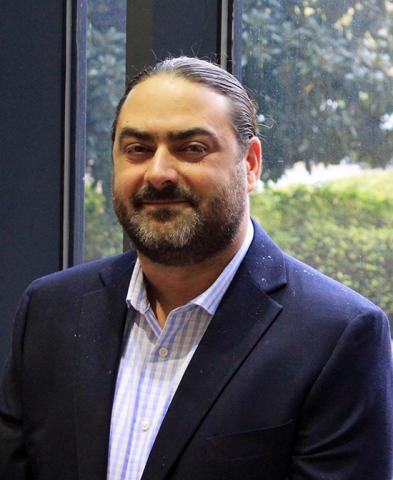Study: Promising outcomes for trauma-informed treatment for incarcerated women

Dr. Stephen Tripodi has been researching criminal justice issues since he was a doctoral student at The University of Texas at Austin. He started off as a research assistant involved in evaluating an in-prison restorative justice program for incarcerated men who were within six months of release. As FSU, Tripodi has refined his research focus primarily on incarcerated women, the childhood maltreatment experienced by a majority of this population, and the resulting mental health and substance misuse problems that often develop from these experiences.
While developing a Social Work and Criminal Justice course during his second year as an assistant professor at the FSU College of Social Work, Dr. Tripodi realized that much of what we are doing for women in prison – regarding rehabilitation – is based on what we know about men in prison. “Incarcerated men and women are largely different populations with different needs and experiences,” he clarified. “Familiarizing myself with gender-responsive interventions and the importance of trauma-informed care, I discovered I have a great passion for understanding the pathways from childhood maltreatment experiences to involvement with the criminal justice system for this population. I wanted to understand those pathways as deeply and as specifically as possible.”
With the help of National Institute for Health funding through the Rutgers University Mental Health and Criminal Justice Research Center, Dr. Tripodi was able to collect information on childhood trauma, mental health problems, and substance misuse for 230 incarcerated women in two prisons in Raleigh, North Carolina. Results from this study indicated a great need for evidence-driven trauma-informed care that addresses mental health and substance misuse. Most women in the sample experienced childhood physical and/or sexual victimization, and those with more frequent victimization were more likely to have attempted suicide, been hospitalized for emotional or psychological problems, and to show symptoms of psychosis, depression, and anxiety. More frequent victimization was also related to an increased likelihood of substance misuse and interpersonal victimization as an adult.
In his most recent study, he and coauthors Dr. Annelise Mennicke and Dr. Susan McCarter of the University of North Carolina at Charlotte, and FSU College of Social Work Doctoral Candidate Katie Ropes Berry used an experimental design to evaluate the use of Seeking Safety, an intervention that addresses trauma and substance misuse simultaneously. “Seeking Safety is a present-focused cognitive-behavioral intervention in which participants are not asked to talk in-depth about their trauma. Doing so can be counterproductive for incarcerated women who live in a setting that exacerbates traumatic reactions,” Tripodi explained. He also noted that the use of Seeking Safety is popular in women’s prisons, but that only four published evaluations have been done on its effectiveness before this study, and results are mixed.
 This latest study by Tripodi and his coauthors compared Seeking Safety to a treatment-as-usual control group at the Southern Correctional Institution in Troy, North Carolina. Results from the experimental design showed improvement in PTSD and depressive symptoms in both groups, including the women in the Seeking Safety group. In fact, the women in the Seeking Safety group improved their PTSD and depressive symptoms more so than the women in the control group. Dr. Tripodi noted that the experiment’s small sample size could affect the results and that results should not be generalized beyond the sample that participated in the study, speaking to the importance of continuing to assess the effectiveness of Seeking Safety with a larger sample size of incarcerated women.
This latest study by Tripodi and his coauthors compared Seeking Safety to a treatment-as-usual control group at the Southern Correctional Institution in Troy, North Carolina. Results from the experimental design showed improvement in PTSD and depressive symptoms in both groups, including the women in the Seeking Safety group. In fact, the women in the Seeking Safety group improved their PTSD and depressive symptoms more so than the women in the control group. Dr. Tripodi noted that the experiment’s small sample size could affect the results and that results should not be generalized beyond the sample that participated in the study, speaking to the importance of continuing to assess the effectiveness of Seeking Safety with a larger sample size of incarcerated women.
Currently, Tripodi is working with the Florida Department of Corrections on an alternative treatment design in which participating incarcerated women will be assigned to the Seeking Safety intervention group or to a group receiving another trauma-focused intervention called Skills Training in Affective and Interpersonal Regulation (STAIR). “It is important to understand which correctional-based interventions are truly helpful to incarcerated individuals,” Tripodi stressed. “Using evidence to show that interventions help women in prison, particularly with constructs related to recidivism, can help us recognize what resources are used, and then to allocate resources effectively.”
Results from this study have been presented to other researchers, scholars, and practitioners with the Academic Consortium on Criminal Justice Health, the International Congress on Law and Mental Health, the Society for Social Work and Research, and the American Probation and Parole Association. To learn more about this research and related criminal justice research, contact Dr. Stephen Tripodi at stripodi@fsu.edu.
